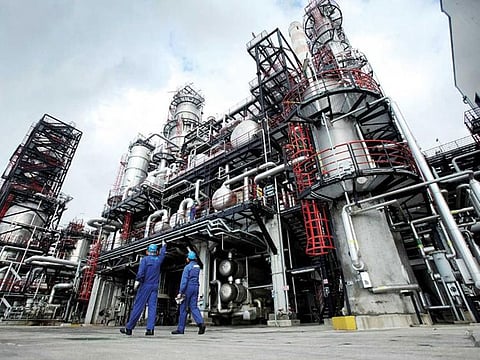US refiners face summertime hurdles amid heavy oil shortage
The decline comes as a loss of crude supply have driven up the price of fuel oil

Houston. A global shortage of heavy crude will create hurdles for America’s key refining belts just as they ramp up gasoline production for summer driving season.
In the Gulf Coast, dwindling heavy oil supplies have suppressed refining margins, while Midwest refiners may not reach the high run rates seen last summer. Gulf Coast profits from coking — a process where heavy crude is broken down into fuels such as gasoline and diesel — are already at their lowest levels in nearly a decade, according to data from Oil Analytics Ltd.
The decline comes as a loss of crude supply from sanctions-hit Venezuela and Iran, as well as production cuts by Canada and Opec, have driven up the price of fuel oil, which is used to make gasoline through the coking process. Gulf Coast fuel oil, a by-product of heavy crude, reached a six-month high in late April.
Gulf gasoline prices in the run-up to summer are also below the five-year average. Still, slimmer profits won’t necessarily mean less production. Margins are weak, but ‘we don’t expect any run cuts,’ said Jan-Jacob Verschoor, director of Oil Analytics Ltd., which studies refinery economics.
For June through August, runs are expected to be around 9.3 million barrels a day, similar to utilisation to last year, Chris Barber, head of refining biofuels analysis for ESAI Energy, said by phone.
In the Midwest, it’s a different story. Refineries in the region rely on Western Canadian Select, a heavy crude that’s recently gotten cheaper after Alberta’s government eased some production limits. The inexpensive oil supply has driven up coking margins for area refiners — but supply remains tight as Alberta won’t lift its mandatory output curbs until the end of the year.
The supply crunch will likely push Midwest refinery runs to about 3.85 million barrels a day during June-August, lower than 3.95 million last year, Barber said.


